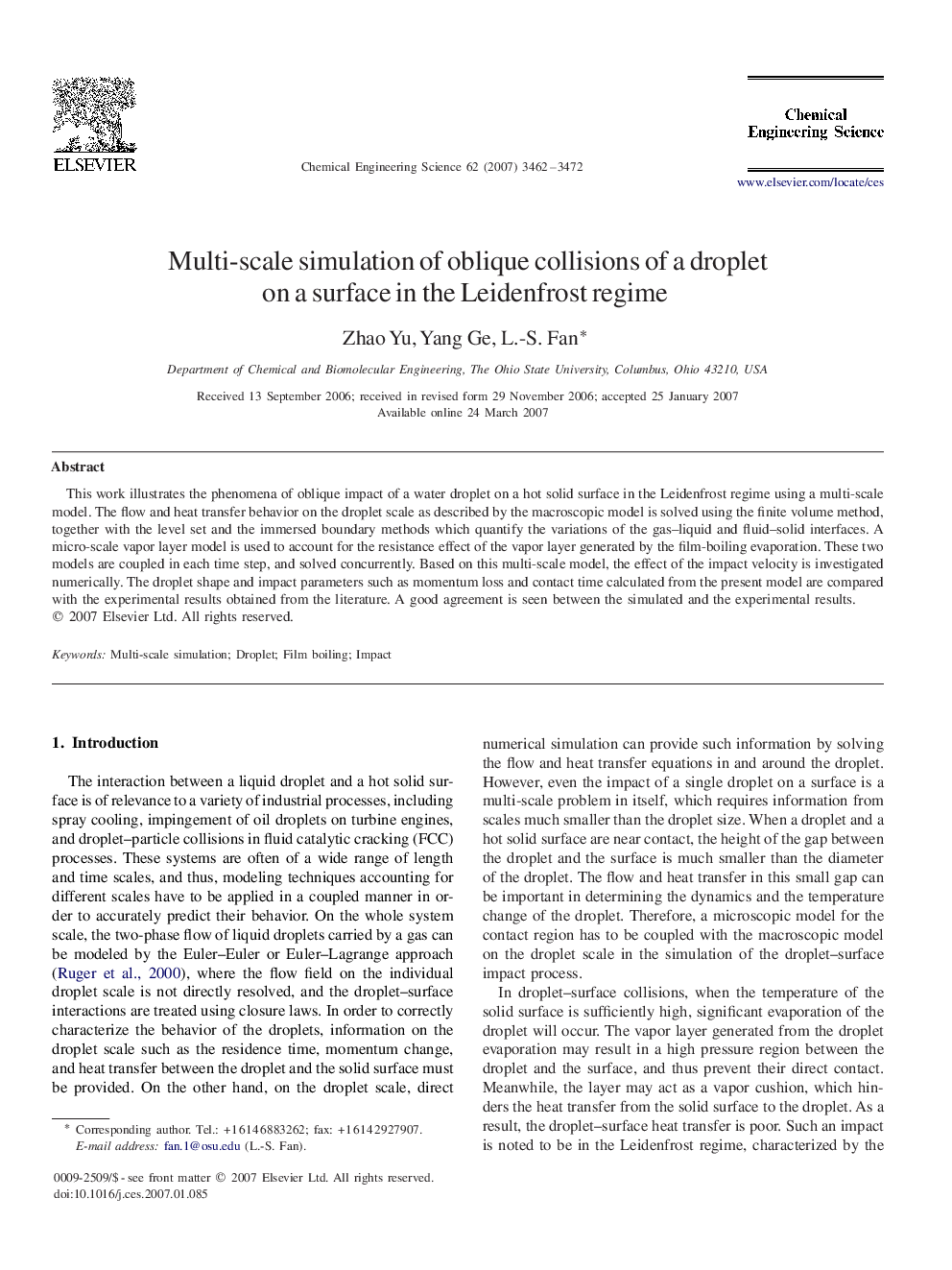| Article ID | Journal | Published Year | Pages | File Type |
|---|---|---|---|---|
| 159180 | Chemical Engineering Science | 2007 | 11 Pages |
This work illustrates the phenomena of oblique impact of a water droplet on a hot solid surface in the Leidenfrost regime using a multi-scale model. The flow and heat transfer behavior on the droplet scale as described by the macroscopic model is solved using the finite volume method, together with the level set and the immersed boundary methods which quantify the variations of the gas–liquid and fluid–solid interfaces. A micro-scale vapor layer model is used to account for the resistance effect of the vapor layer generated by the film-boiling evaporation. These two models are coupled in each time step, and solved concurrently. Based on this multi-scale model, the effect of the impact velocity is investigated numerically. The droplet shape and impact parameters such as momentum loss and contact time calculated from the present model are compared with the experimental results obtained from the literature. A good agreement is seen between the simulated and the experimental results.
